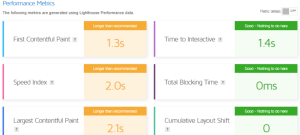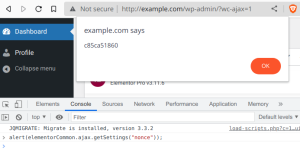Recently it was back, Matt Mullenweg spoke about the state of WordPress and again gave interesting visions of 2023 and future developments.
Extended taxonomy for the plugin and theme directory
The new taxonomies should help determine the purpose of extensions more quickly.
For plugins, this could mean a tag for plugins that a developer creates to solve a problem, but which are not intended for wide public use and for which there is no specific support.
Another tag is for “community” plugins, which are plugins that “belong to all of us” and are managed by the lead developers for the next generation.
The “Canonical” tag should be used for plugins such as Gutenberg or the WordPress Importer.
Another tag is for commercial plugins that have some sort of upsell and often include commercial support.
Anything with a Pro version falls into this category.
The new taxonomies will be introduced in directories later this month and will also be available in the backend of WordPress installations on plugin and theme pages.
The goal is to make it easier for users to find the right plugin or theme for their needs.
Gutenberg Phase 3
Now the end of Phase 2 of the Gutenberg development has been reached,
- Gutenberg editor for posts and pages
- Gutenberg blocks can now be used to design an entire Web site (Full Site Editing)
we move on to phase 3.
Collaboration in real time
In the future, real-time collaboration will be possible in WordPress, i.e. the collaboration of multiple authors on a topic or also on a post.
Matt Mullenweg talks about the ability to send a link to a colleague, which will open a draft post and then make changes or additions in real time, as known from Google Docs.
It should also be possible to insert comments.
And there should be a notification feature that informs of changes made by employees.
Openverse
In this regard, the area of revisions should also be reviewed.
Moreover, there must be a link or connection to the Openverse in the media library so that an exchange can take place here.
Thus, it should be possible to use images from the Openverse, but also to make images available in the Openverse.
Gutenberg Phase 4
However, the multilingualism planned for Phase 4 is still “years away.”
Playground
Matt Mullenweg presents the Playground where you can test WordPress in your browser, including the installation of plugins and themes.
Currently, the project is still in the development phase, but future features should include the following:
- One-click website cloning to experiment with design updates and plugins.
- WordPress programming tutorials in the browser without local setup (like this early preview of a live block editor).
- Website builder without installation
- Options for PHP and WordPress versions – useful for testers
- Bug reports
- One-click development environments for code review, onboarding new developers or debugging failed tests directly in CI
WordPress turns 20
Next year, WordPress celebrates its 20th anniversary.
There is a special website for it: WP20.
Here you will find information about events, as well as merchandise.




